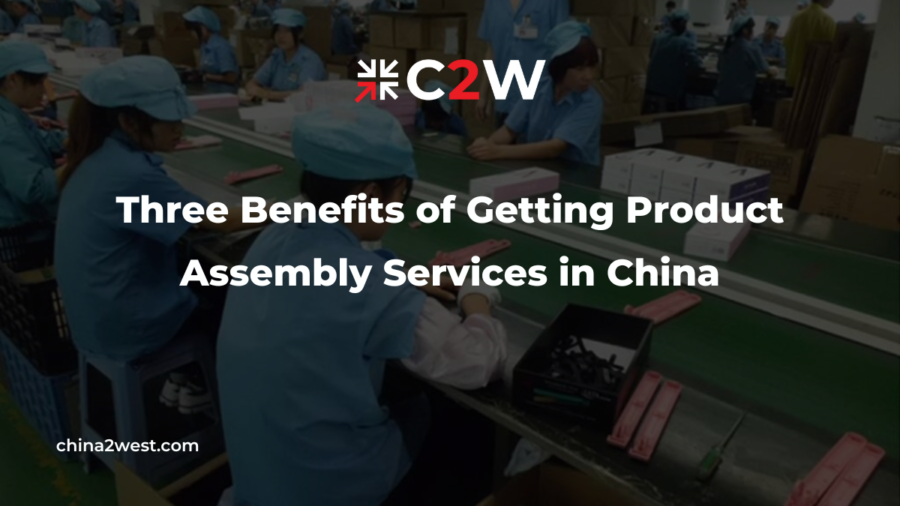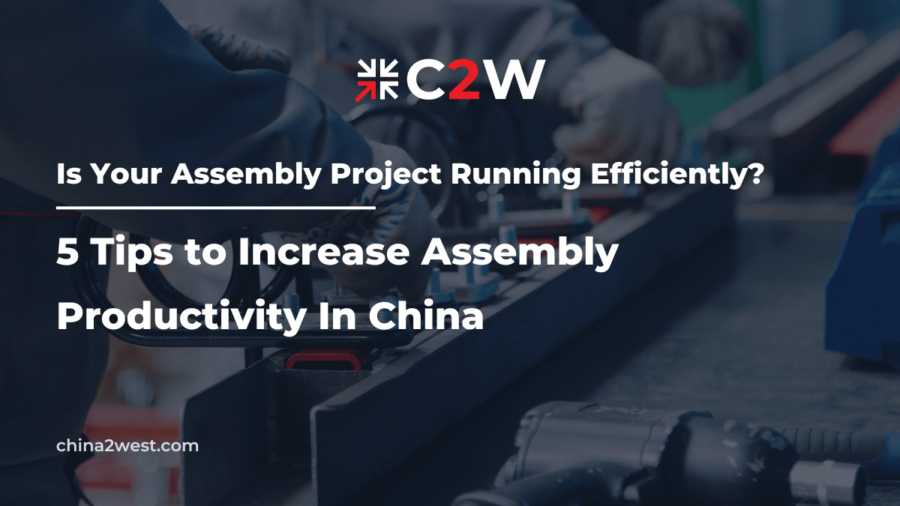Are you currently deliberating whether to engage an assembly service to fulfill your clients’ demands, whether you’re an emerging startup or an established enterprise? Have you contemplated the prospect of collaborating with an overseas company but find yourself uncertain of what lies ahead?
In your local vicinity, there exist numerous vendors whom you could potentially engage. However, it is imperative to ascertain whether they possess the requisite materials to meet your clients’ demands. Similar to you, countless product-centric companies and entrepreneurs opt to avail themselves of the services offered by overseas entities to cater to their requirements.
If you find yourself in the initial stage of comparing product assembly services and require additional information on identifying the suitable distribution company, you have arrived at the appropriate destination. Within this concise guide on product assembly services, we shall delve into the process of locating the ideal manufacturer and provide you with relevant contact details for further inquiries.
What Exactly Are Product Assembly Services?
Product assembly services, or rather, product assembly companies, are responsible for fabricating your products and subsequently dispatching them either to you or directly to your customers. Undertaking this process independently can rapidly become an expensive endeavor. Hence, it is prudent to collaborate with a reputable assembly service company, thereby saving significant amounts of both time and money.
Product Assembly Services in China
To optimize both time and cost savings, outsourcing your product assembly tasks to a third-party entity proves to be the most effective approach. Numerous enterprises outsource their operations to China owing to the substantial benefits associated with cost reduction. By partnering with a reliable assembly service company, businesses can attain significant savings in terms of production and distribution costs.
Selecting the Appropriate Product Assembly Company
While selecting the most suitable product assembly company, it is imperative to ascertain whether they employ certified professionals. Generally, reputable third-party assembly companies boast favorable testimonials derived from past experiences, consistently validating their ability to deliver products that align with client requirements.
Evaluate their Expertise
Even if a company’s professionals possess the requisite certifications, it is essential to examine their previous body of work. As you compare various companies that offer assembly and inspection services, inquire about their internal quality control process and methodology.
Does your appointed inspector utilize statistical models? Does the company employ random sampling techniques?
Are all the assemblers certified as quality assurance inspectors? Do not hesitate to pose pertinent questions regarding the process and timelines to your chosen distribution company.
Consider Other Reviews
When engaging in discussions with a prospective company, it is prudent to peruse reviews pertaining to their performance. Utilizing third-party review websites allows you to gauge the experiences of previous clients who have either endorsed or criticized their collaboration with the company in question.
Although reviews serve as a valuable starting point, gauging the suitability of a company necessitates direct communication. Each company possesses unique expectations and requirements, implying that what may not suit your preferences might prove to be highly suitable for someone else.
During conversations with your selected assembly company, closely observe their responsiveness to your requests. Do they address your queries in a timely manner?
Do they exemplify excellence in client service? Given that partnering with a distribution company entails forging a long-term relationship, it is vital to collaborate with an entity renowned for providing top-tier customer service.
Available Assembly Capabilities
Not all assembly companies are created equal. Some entities specialize in diverse forms of product assembly, while others concentrate solely on manufacturing products fashioned from specific materials. The most prevalent forms of general product assembly involve composites, carbon fiber, plastics, metals, and textiles.
Additional assembly services include:
Prepackaging
Food packaging
Product re-assembly
Assembly testing
Powder and liquid filling
When assessing different companies, inquire about their possession of the necessary items and materials required to execute the task. Additionally, it is prudent to ascertain whether they possess prior experience in manufacturing products similar to yours.
Intellectual Property Protection
Each country operates under its unique set of rules and regulations governing privacy and the safeguarding of intellectual property. For any company, having their product specifications compromised after years of development constitutes a significant nightmare. If your distribution company is responsible for shipping products to your clients, it is crucial to ensure that their data is adequately safeguarded.
Before engaging in any collaborative endeavor, thoroughly research the intellectual property laws of the country in question, in addition to scrutinizing the distribution company’s track record with previous clients. In the slightest instance of an unfavorable track record, it is highly recommended to explore alternative options. Preserving the rights of your products brooks no margin for error.
Software Information
A supplementary step in safeguarding your intellectual property information involves examining the type of software employed by your distribution company. Does their technology boast a reputable standing regarding privacy features?
Does it encompass safety measures akin to those established within your own business? If the company exhibits reluctance in sharing such vital information, it may indicate an underlying cause for concern.
Product Timelines
As you embark upon discussions with different companies, it is imperative to ascertain their projected timelines for product completion. The duration it takes for them to create and dispatch your orders significantly impacts the time required for delivering your product to your clientele.
Naturally, partnering with a company capable of manufacturing high-quality items within a reasonable timeframe is the ideal scenario. However, it is equally important not to hasten the process if the company lacks the necessary capabilities to deliver high-quality items promptly.
When discussing timelines, focus not only on the duration required for product creation but also on how the company handles natural disasters and weather-related delays. Such unforeseen circumstances necessitate having a primary point of contact to initiate the subsequent course of action.
Product Assembly Process
The initial step in the assembly process entails identifying the appropriate company. Upon identifying a potential collaborator, it is advisable to submit a request. The suitable company will propose scheduling a discussion to delve into the intricacies of your product via a telephonic conversation. This enables them to ascertain the materials required, the corresponding quantities, and other vital details essential for manufacturing your product to precise specifications.
During the preliminary stages, both you and the company must possess a clear understanding of the product’s expected outcome. Consequently, before proceeding with the rest of the production, it is essential to receive a rendering of your product, accompanied by a physical model for your assessment. As each company adheres to its unique processes, it is vital to remain cognizant of the various stages involved in their production procedure.
Advantages of Overseas Manufacturing
As previously mentioned, numerous companies opt to outsource their product manufacturing endeavors to leverage cost reductions. Additionally, a significant contributing factor pertains to specific concentrations prevalent in various regions.
For instance, electronic products constitute a primary focus within the production landscape of China. Plastic products and mainstream items such as clothing also rank among the nation’s notable strengths.
High-Volume Capabilities
One of the most significant advantages of partnering with overseas manufacturing companies lies in their capacity for high-volume production. Most manufacturing entities can efficiently generate large quantities of your items within a relatively short timeframe.
Depending on your production requirements and the selected manufacturer, there may be potential discounts for ordering substantial volumes of product. Certain companies may stipulate a minimum purchase order prerequisite, thus facilitating cost control for both parties involved. Conversely, if you require a smaller order, higher fees and costs can be anticipated.
Skills and Talent
The skill level in other countries often surpasses that found within the United States. This discrepancy primarily arises from the relative scarcity of Americans employed in manufacturing occupations. Consequently, this skill gap prompts many companies to seek assistance from overseas sources.
The United States predominantly necessitates individuals proficient in computer and digital skills, technical knowledge, and programming expertise. These sought-after skills are readily available in major manufacturing companies located overseas.
Close Proximity to Raw Materials
Factories in the United States often rely on overseas sources for procuring their raw materials, leading to increased costs and longer time-to-market deadlines. Conversely, many manufacturers in China possess direct access to the required raw materials, either within their own facilities or through established partnerships.
In cases where raw materials are not readily available, alternative sources can be quickly secured through existing connections. By having your manufacturer produce the product on your behalf, you can circumvent delays associated with sourcing raw materials. This mitigates the need for countries shipping materials to the United States, thereby reducing shipping costs and averting prolonged wait times exacerbated by the impact of COVID.
Disadvantages of Overseas Manufacturing
Although outsourcing boasts several advantages, it is prudent to consider certain associated drawbacks. For instance, while the cost of components and production is generally lower, shipping costs may not be as favorable. Negotiating more favorable shipping rates is a possibility, particularly when contemplating a long-term partnership with the overseas manufacturer.
Longer Lead Times
Despite the cost advantages associated with overseas production in large volumes, it is essential to account for longer lead times. This encompasses the time required for your goods to traverse from overseas locations to the United States. Calculating the expected arrival time necessitates considering shipping durations, national holidays, and the manufacturing company’s internal demands.
Possible Language Barriers
When collaborating with overseas manufacturers, cultural and language barriers are likely to arise. These barriers can complicate matters concerning workflow comprehension, pricing negotiations, and contractual agreements.
Acquiring knowledge of the manufacturer’s culture and values can facilitate smoother interactions. Establishing a liaison proficient in both your language and the manufacturer’s language can be beneficial. This intermediary can effectively communicate on your behalf, ensuring the protection of your best interests.
Safety Risks
Ensuring environmental and worker safety remains a top priority for any business. However, not every country places the same emphasis on environmental conservation or employee well-being. Hence, it is imperative to partner with a company that adheres to sound labor practices, prioritizes environmental protection, and implements comprehensive safety programs.
Local vs. Overseas
When deliberating on where to manufacture your product, you face the choice between working with a local company or partnering with an overseas entity. Opting for a local company facilitates easier communication in your native language and reduces expenses associated with customs and shipping fees. Additionally, the proximity ensures shorter delivery times.
While this may appear favorable, the limited array of supplier capabilities is a potential drawback. Not every U.S.-based manufacturer possesses the requisite talent, skills, expertise, or access to the necessary raw materials for manufacturing your product. Consequently, if local sourcing proves challenging, exploring reputable overseas companies becomes necessary. However, before committing to any collaboration, it is crucial to engage in thorough communication with the prospective partner to determine their ability to meet your specific requirements. Contact us today and get to know more about how it can help!



